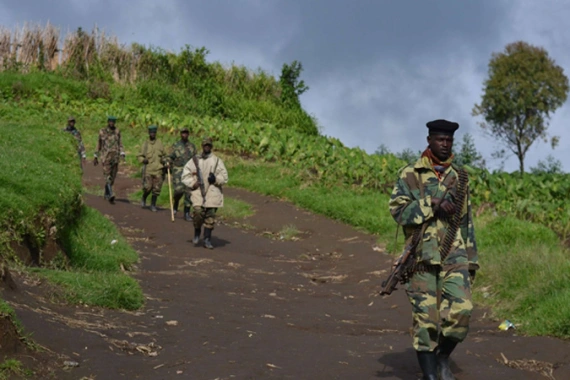
The Rwandan army has intervened in the eastern Democratic Republic of Congo (DRC) in recent months, both directly and in support of armed groups, according to a report by UN experts.
The Rwandan army has “launched military interventions against Congolese armed groups and positions of the Congolese Armed Forces” since November 2021, according to the report, which was transmitted to the Security Council. The experts say that Kigali has also “provided troop reinforcements to the M23 for specific operations, particularly when these were aimed at seizing strategic towns and areas”.
The 23 March Movement (M23) is a former Tutsi-dominated rebellion defeated in 2013, which took up arms again at the end of last year to demand the implementation of an agreement signed with Kinshasa. Since the end of March, the frequency and intensity of fighting has increased dramatically and the M23 has taken over parts of Rutshuru territory, up to ten kilometers north of Goma, the provincial capital of North Kivu.
The report of the Group of Experts undermines the denials of the Rwandan authorities and details, with evidence, the direct involvement of Rwanda “unilaterally or jointly with M23 fighters” in the east of the DRC. On June 13, the strategic town of Bunagana (50 km north of Goma), a commercial crossroads on the Ugandan border, was taken by the M23 after clashes.
Drone footage provided by MONUSCO, amateur videos and photos and eyewitness accounts establish the presence of Rwandan armed forces and/or the transfer of their equipment to the M23 in and around the town of Bunagana on the eve and day of the attack. The Group adds that “eyewitnesses and researchers have reported a passive complacency, at a minimum, of the Ugandan army at the border, which allowed M23 fighters to cross the border” to attack the town.
